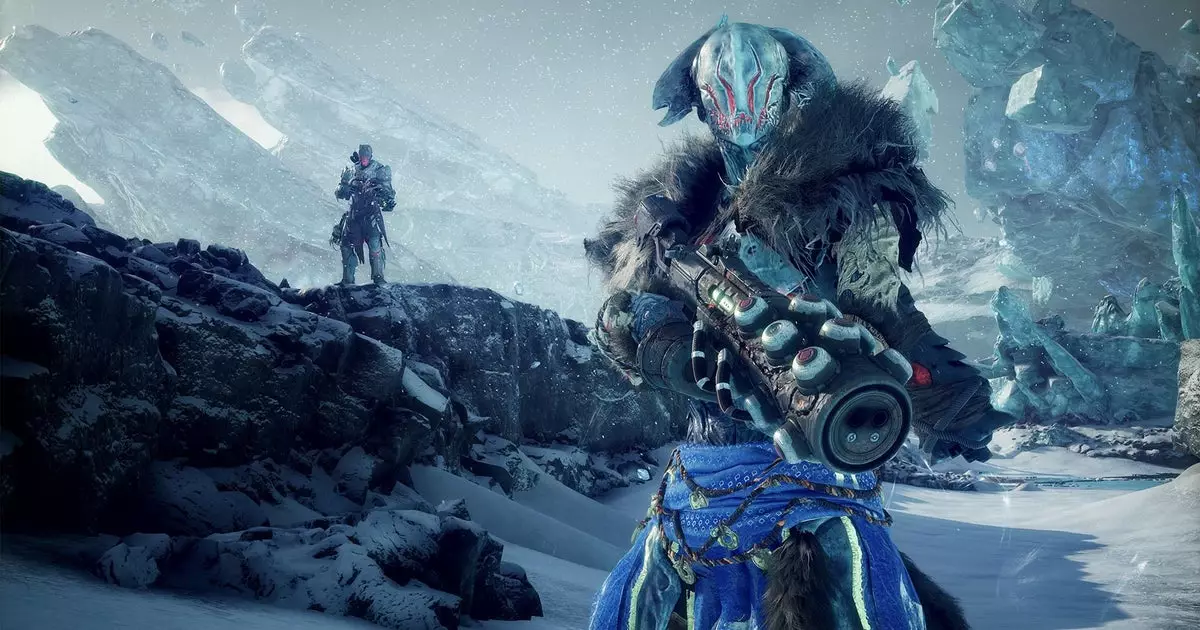The video game industry has long been a realm of high stakes and extraordinary potential, where developers pour their souls into what they hope will be the next big hit. Yet, the downfall of ambitious projects can often be traced back to an all-too-frequent issue: poor communication. People Can Fly, the studio behind the acclaimed Gears of War franchise, is the latest to fall victim to this fatal flaw, announcing the cancellation of two major game projects, codenamed Gemini and Bifrost. This not only highlights the fragility of developer-publisher relations but also shines a harsh light on the internal struggles facing game development teams.
The CEO of People Can Fly, Sebastian Wojciechowski, pinpointed a “lack of communication” as the underlying reason for halting the Gemini project. In the fiercely competitive gaming market, ambiguity surrounding project milestones and funding can spell disaster. A publisher’s reluctance or inability to clarify financial commitments leaves developers in a quagmire of uncertainty. For Wojciechowski, the failure to receive essential documents cementing future agreements indicates not only a breakdown in dialogue but also a profound loss of trust. This sentiment may resonate deeply with many within the industry; after all, the weight of expectation can turn into a crushing burden when communication falters.
Fallout from Frustrating Financial Dynamics
While Gemini fell victim to these communication failures, the Bifrost project faced its demise due to more dire financial assessments. Reportedly, the cash flow analysis revealed scant chances of securing the resources necessary to continue development, prompting a reckoning within the studio. The financial landscape of game development is notoriously tough, with production costs skyrocketing and publishers often tightening their purse strings at the first signs of risk. In this case, it forces a grim reevaluation of aspirations, leading to significant job cuts and a reorganization of studio teams. Layoffs seldom occur without deep emotional scars; they rip apart the fabric of creativity and collaboration that studios rely heavily upon.
It’s essential to underscore the human cost of such decisions. Following the news of the cancellations, numerous contributions from former staff members on LinkedIn have illustrated the tremendous talent that once thrived at People Can Fly. These testimonials reflect a community shattered, as people navigate their professional lives after being unceremoniously laid off. Their well-articulated sadness and admiration for their teams expose the reality of a gaming culture that often prioritizes bottom lines over individual contributions.
The Warning Signs of an Industry in Turmoil
Unfortunately, People Can Fly is not isolated in their challenges. The studio’s recent history describes a rollercoaster journey, marked by a meteoric rise followed by a series of cancellations and layoffs. They previously laid off 30 employees last year and abandoned another promising project in partnership with Take-Two Interactive. This pattern raises alarming questions regarding the sustainability of such studios amid the industry’s cyclical nature. The pressures of the market lead to a ruthless elimination of projects that are not seen as profitable swiftly.
Moreover, the constant adjustment of project expectations and team structures can lead to a toxic work environment, where creativity is stifled, and passion projects are relegated to mere business exercises. As game development contracts have become increasingly complex and multi-tiered, solid foundations rooted in communication are crucial. Without them, studios find themselves scrambling to stay afloat, left to mourn the loss of potential in the form of both projects and personnel.
Hope Amid Uncertainty: The Human Spirit of Game Development
Despite this disheartening turn of events, a glimmer of hope persists. The candid reflections of those affected by the cancellations remind us that the heart of game development lies not just in the end product but in the people who dedicate their lives to creating immersive experiences. Their talents and enthusiasm hint at the potential for future projects, should opportunities arise.
In an industry often seen as driven solely by profits, the voices of these developers remind us of the passion that transforms mere lines of code into captivating worlds. As they move on to new ventures, the resilience and hopes of these talented creators will likely fuel the next generation of remarkable games. Even as People Can Fly grapples with the fallout of its recent setbacks, the spirit of dedication exhibited by its staff offers a hopeful counterpoint to the prevailing narrative of loss and disappointment.

